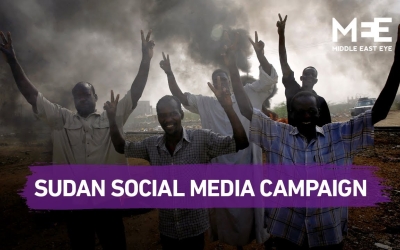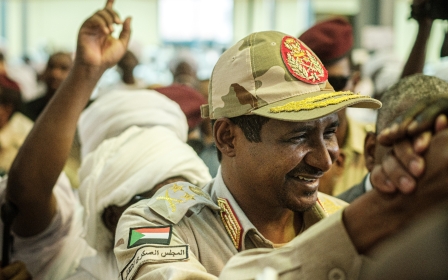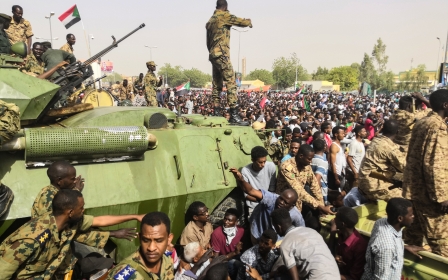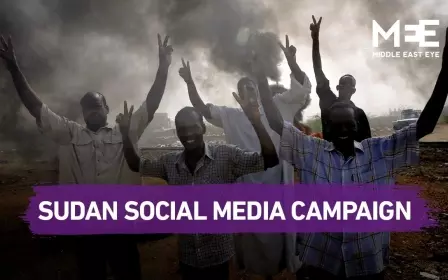Sudan military council open to talks as protests ramp up pressure
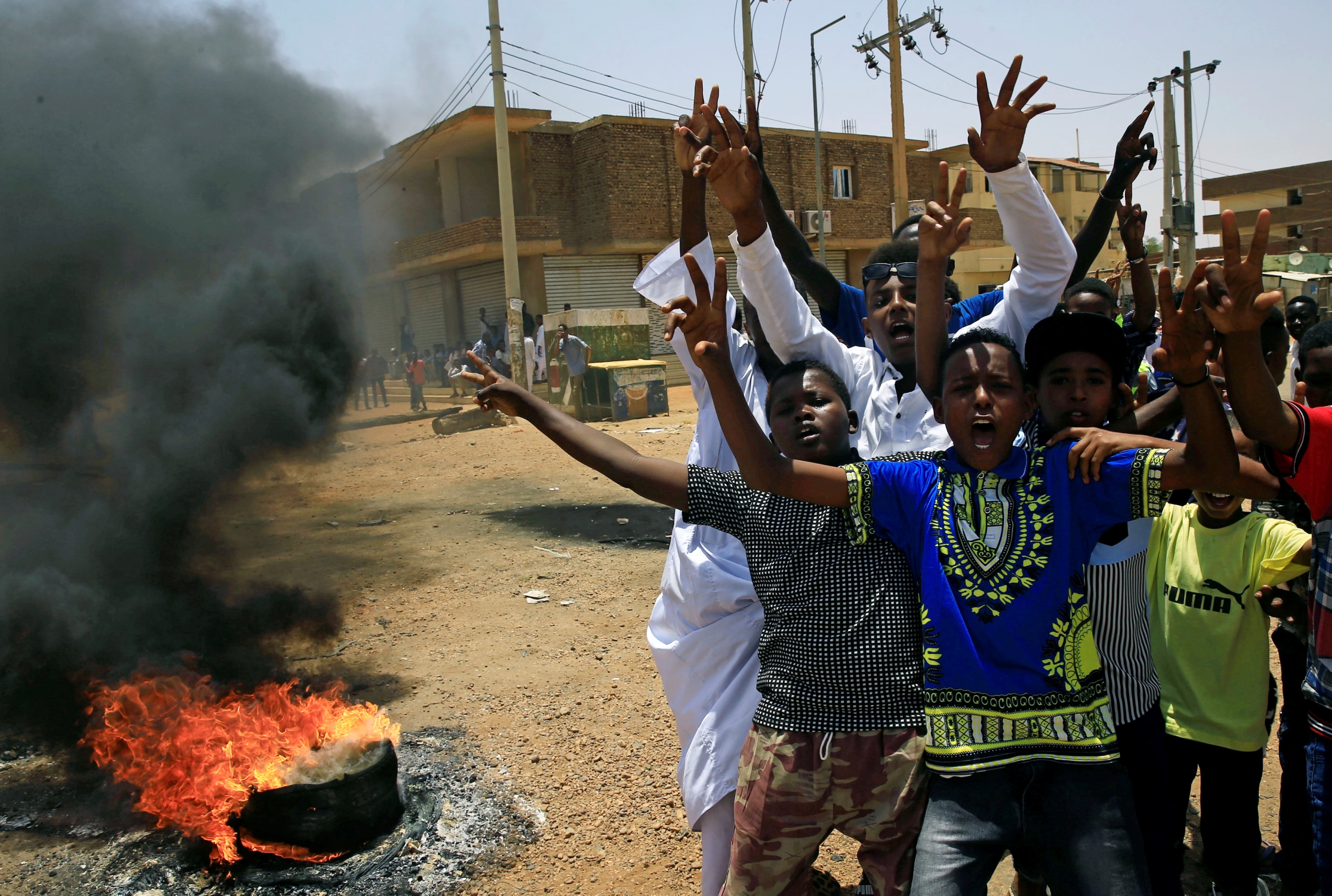
Protesters in Sudan defied a military crackdown and internet blackout that had hindered their ability to organise, by gathering in cities across Sudan on Tuesday night.
The protests have once again increased pressure on the country's ruling military council, which said on Wednesday that it was ready to resume negotiations with opposition groups, two weeks after it violently dispersed a sit-in outside the army headquarters in Khartoum.
"We are ready to continue negotiations with the Forces of the Declaration of Freedom and Change," the council's head, Abdel Fattah al-Burhan, said. "We do not deny its role in the uprising or in the popular revolution, their leadership of the masses."
Speakers from the Sudanese Professionals Association (SPA), who since December have spearheaded the protest by relying on the internet, have been touring neighbourhoods of the capital Khartoum, holding rallies and community meetings with locals.
Khartoum residents told Middle East Eye the city has been downbeat since Sudanese forces dispersed a mass sit-in just over two weeks ago, killing at least 128 according to doctors, but that there was increasing protest activity during the nights.
The internet has been almost entirely cut by the military council for more than two weeks, hindering the organising of protest activity, which has now fallen to localised "resistance committees" who rally their neighbours and hand out printed notices to replace digital communication.
Neighbourhoods in the capital and towns around the country saw hundreds of protesters on the streets, chanting for civilian government and in defiance of the ruling military council.
"Our triumphant revolution is reconstructing across Sudan; in cities, villages and the countryside, renewing the covenant with our beloved brothers and sisters who despite their deaths live with us forever," the SPA said in a statement on Tuesday.
"The Sudan we all want and for which they have sacrificed their lives shall become a reality, a respectable sovereign nation."
"Peacefully, peacefully, against the gun fire," protesters shout in the Khartoum neighbourhood of al-Sahafa
The SPA had called for Tuesday night's protests earlier in the week when it released a schedule of protest activity aimed at galvanising the movement that had been relatively muted since the Khartoum sit-in, and similar sit-ins around Sudan, were suppressed on 3 June.
The government's Rapid Support Forces (RSF) paramilitary, accused by protesters of leading the killings at the sit-in, spread throughout Khartoum following the dispersal, and activists claimed they were responsible for widespread abuses, beatings and the arrests of passers-by.
The SPA said in a news conference on Monday that it had documented at least 12 cases of women being raped by Sudanese forces.
'Resistance committees'
The RSF's leader Mohammed Hamdan Dagolo, known as Hemeti, is the deputy head of the ruling military council that ousted three-decade ruler Omar al-Bashir on 11 April after months of protests.
But the sit-in outside Sudan's military headquarters, that had increased pressure on Bashir in the days before his ousting, remained in place until 3 June, demanding the military council give way to civilian government.
The opposition coalition, which includes the SPA, ended negotiations with the military for a transitional joint civilian and military authority after the sit-in's dispersal, but has accepted mediation efforts by Ethiopian Prime Minister Abiy Ahmed.
The SPA's protest schedule, reminiscent of the way it organised neighbourhood-focused protests before the mass sit-in began on 6 April, called for community meetings to discuss the political situation on Wednesday, followed by more protests in the evening and mass marches on Thursday.
Burhan said the opposition alliance should return to talks without preconditions.
"The solution must be satisfactory for all the Sudanese people," he said. "We pledge to you and pledge to the people that we will not accept any solution that excludes any faction of the Sudanese people."
Middle East Eye delivers independent and unrivalled coverage and analysis of the Middle East, North Africa and beyond. To learn more about republishing this content and the associated fees, please fill out this form. More about MEE can be found here.


